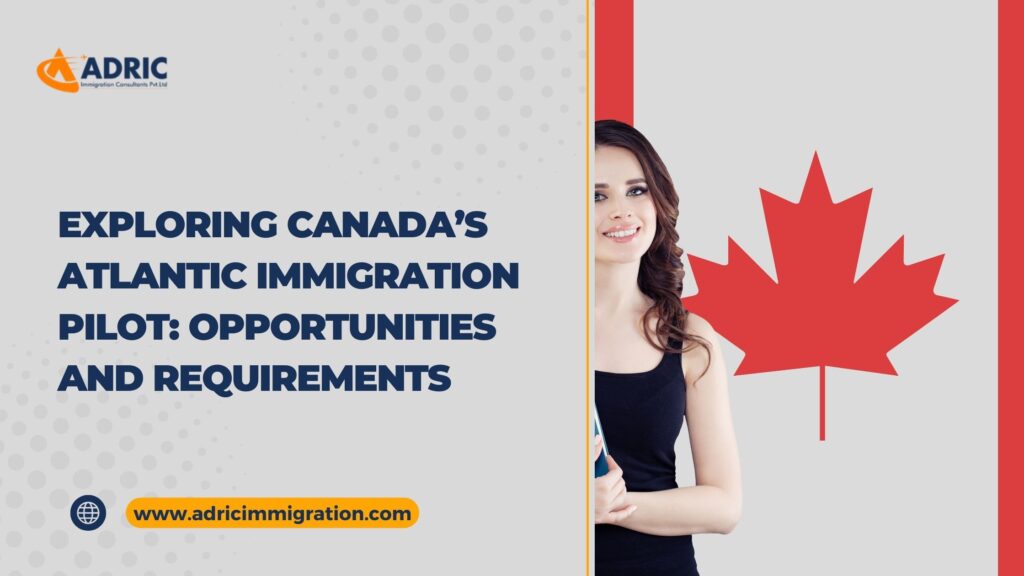Canada’s Atlantic Immigration Pilot (AIP) offers exciting opportunities for skilled workers and international graduates to settle in the Atlantic provinces of Nova Scotia, New Brunswick, Prince Edward Island, and Newfoundland and Labrador. Here’s a closer look at the program’s opportunities and requirements:
Streamlined Pathway to Permanent Residency:
The AIP provides a streamlined pathway to permanent residency for skilled workers and international graduates who have a valid job offer from a designated employer in one of the Atlantic provinces. It aims to address labor market needs and support regional economic development.
Eligibility Criteria:
To qualify for the AIP, applicants must meet certain eligibility criteria, including having a job offer from a designated employer in an eligible occupation, meeting language proficiency requirements (English or French), having sufficient funds to support themselves and their families, and obtaining a settlement plan approved by the province.
Designated Employers:
Employers in the Atlantic provinces participating in the AIP can hire skilled workers or international graduates to fill vacant positions that they have been unable to fill locally. Designated employers must meet certain criteria and undergo a verification process to participate in the program.
Occupational Categories:
The AIP covers a wide range of occupations, including but not limited to healthcare, information technology, finance, hospitality, and manufacturing. Applicants must have skills and experience relevant to the job offer and meet the requirements of the National Occupational Classification (NOC) system.
Language Proficiency:
Language proficiency in either English or French is a key requirement for the AIP. Applicants must demonstrate proficiency through approved language tests such as IELTS (International English Language Testing System) or CELPIP (Canadian English Language Proficiency Index Program) for English, or TEF (Test d’évaluation de français) for French.
Settlement Plan:
As part of the application process, applicants must develop a settlement plan outlining their intentions for settling in the Atlantic province where they have a job offer. The settlement plan must be approved by the province and may include details such as housing, healthcare, education, and community integration.
Permanent Residency Application:
Once applicants have secured a job offer, met the eligibility criteria, and obtained a settlement plan approval, they can apply for permanent residency through the AIP. Successful applicants and their families can enjoy the benefits of living and working in Canada’s vibrant Atlantic region.
Conclusion:
Canada’s Atlantic Immigration Pilot presents valuable opportunities for skilled workers and international graduates to pursue permanent residency and contribute to the economic growth and vitality of the Atlantic provinces. By meeting the program’s requirements and securing a job offer from a designated employer, applicants can embark on a rewarding journey to establish themselves in Canada’s eastern provinces. At Adric Immigration, we specialize in guiding individuals through the AIP application process, helping them navigate the requirements and maximize their chances of success.

